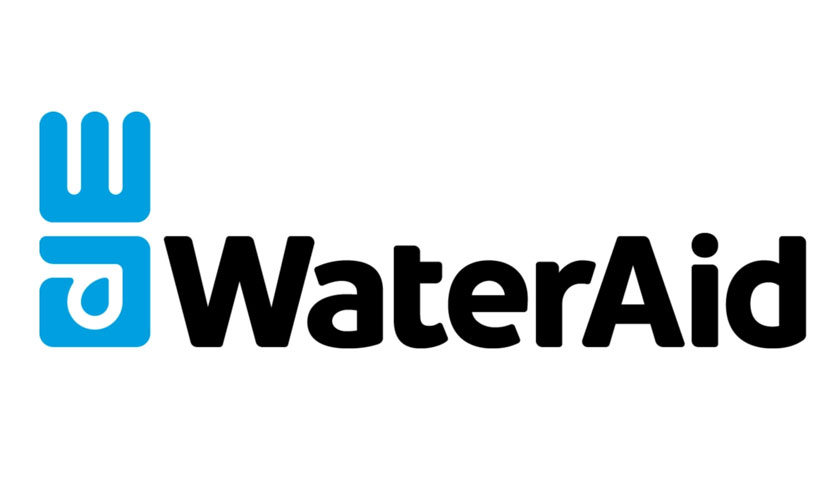As the cost-of-living crisis continues to bite, a new WaterAid survey highlights its devastating impact on people who menstruate, with almost a quarter in the UK (24%) saying they or their family have struggled to afford period products in the last year and nearly a third (32%) worrying they won’t be able to afford them in the future.
The international charity surveyed 2,000 British people who menstruate aged 14 to 50 to mark Menstrual Hygiene Day on 28 May, uncovering the sometimes-shocking ways people are being forced to reduce costs, such as:
- 1 in 5 (20%) coping by using makeshift materials, such as loo roll or sponges,
- 1 in 4 (26%) wearing period products for longer than they should, risking their health,
- 1 in 6 (15%) having missed school or work during their period.
Across the globe, the vital needs of women and girls, including menstrual health, are often severely neglected at times of crisis and economic hardship, while the education of girls is more likely to be deprioritised than that of boys. Added to this, a third of schools lack decent toilets, meaning many girls miss classes during their periods.
WaterAid is calling for menstrual health to be recognised as critical for gender equality, so no one is held back because of this natural process.
The charity’s poll found that in the last year, 22% of British women and girls have relied on free period products from work, school, a food bank or other charity, while 30% have had to choose cheaper brands to cut costs.
Nearly a quarter (24%) reported missing activities such as sport or social activities due to struggles with affording period products. Over three fifths (61%) said if period products were cheaper or more free products were available, it would improve their mental health or wellbeing.
School-aged girls are among the hardest hit, with 2 in 5 (41%) worrying about adding to the financial burden of their parent or caregiver, and 1 in 5 (20%) admitting to missing school or work as a result of struggling to afford period products.
People who menstruate face even greater challenges in countries without decent water, sanitation and hygiene facilities. In South Asia, up to 1 in 3 girls miss school every month during their period, holding many back from reaching their potential. In Uganda, research by Oxford University found that where sanitary pads or puberty education are not provided, absenteeism among girls is 17% higher than in schools where they do receive products, education or both.
A WaterAid survey in two Myanmar townships on the effect of Covid-19 and political upheaval found economic impacts made it even harder for most households to meet their water, sanitation and hygiene needs. More than 1 in 10 women and girls were unable to afford sanitary pads. One respondent said her sister must use one pad for a whole day at work. They can’t change their pads regularly because prices are going up and they don’t have enough money. WaterAid has provided emergency hygiene kits including sanitary pads, soap and water to communities and is improving sanitation facilities in schools.
The UK’s new International Development Strategy includes a welcome focus on women and girls, but without sustainable access to clean water, sanitation and hygiene, millions are still at risk.
Therese Mahon, Regional Programme Manager South Asia, WaterAid, said:
“An estimated 1.8 billion people across the world menstruate yet 1 in 5 have no access to the decent toilet facilities they need to manage their periods safely and many struggle to access suitable materials – an issue that is exacerbated during times of upheaval.
“But periods do not stop for pandemics or economic crises. That is why WaterAid is calling on all governments to prioritise the needs of women and girls globally; providing them with access to period friendly toilets and clean water – their fundamental human rights – along with menstrual health information and support so they can manage their periods hygienically and with dignity; enabling them to be more resilient whatever the crisis.”
WaterAid is committed to working in schools and communities globally to ensure people have practical information on menstrual health and hygiene as well as access to decent toilet facilities and safe, affordable products including guidance on how to make their own reusable materials and how to use menstrual materials safely. WaterAid also campaigns on an international scale to break down the stigma surrounding periods and ensure menstrual health is included in policies, programmes and related budgets so people get the support they need.
In Ghana, a 20% tax on period products combined with economic challenges means the price of period products fluctuates monthly and makes them unaffordable for many women and girls and totally inaccessible for those living in poverty. WaterAid is among a host of NGOs campaigning for the abolition of this tax.
Kate Kumi, Country Director for WaterAid Ghana explains:
“It is shocking that women and girls in Ghana are hit by a luxury 20% tax on period products, rendering them too expensive for so many, while other essentials such as condoms are rightly affordable, sometimes free. Period products are not a luxury; no-one chooses to bleed each month.”
“We are calling on the Government to honour their 2020 manifesto promise to abolish this punitive tax. This, combined with better access to decent toilets, clean water and good hygiene, will help women and girls across the country manage their periods safely and with dignity, improving their health and wellbeing.”
While significant steps have been made to tackle period poverty in the UK, most notably with the abolition of the tampon tax in January 2021 and provision of free period products in schools and hospitals, a massive 83% of survey respondents thought more needs to be done. The majority of people (71%) asserted there should be more places where you could get free period products and 61% wanted more support for schools to educate students on cost-effective ways to manage your period.
